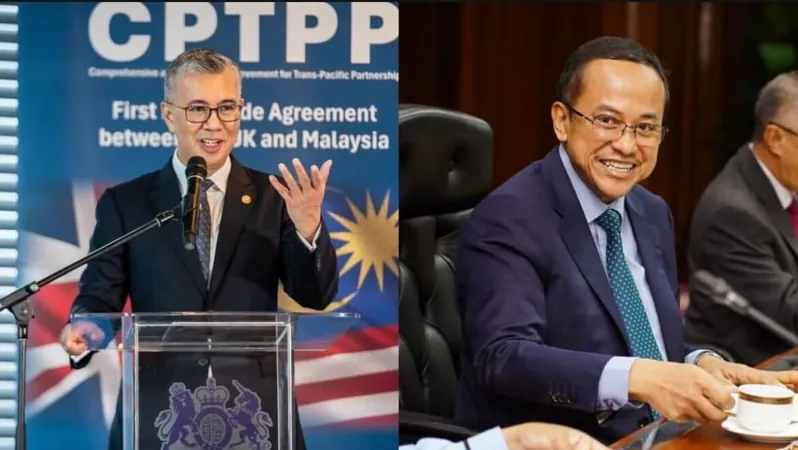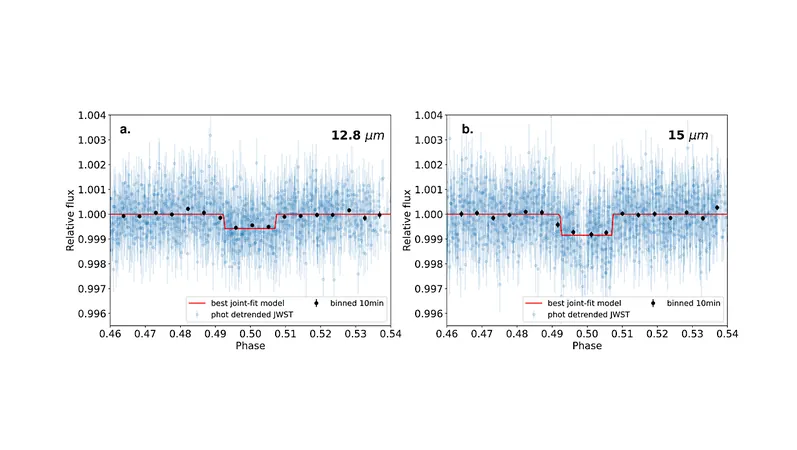
Turmoil in Malaysia: Political Alliances Unravel as Minister Considers Defection and Opposition Leader Resigns
2024-12-16
Author: Ming
KUALA LUMPUR: Malaysia’s political landscape is abruptly shifting, with both the ruling coalition and the opposition facing significant turmoil. Recent events have ignited concerns regarding the unity of both the Pakatan Harapan (PH) government and the Perikatan Nasional (PN) opposition, as prominent leaders make surprising moves.
In the latest development, the International Trade and Industry Minister, Tengku Zafrul Tengku Abdul Aziz, is reportedly in talks to migrate from the United Malays National Organisation (UMNO) to its coalition partner, Parti Keadilan Rakyat (PKR). This revelation followed Prime Minister Anwar Ibrahim’s acknowledgment of discussions related to Zafrul’s potential defection, met with immediate backlash from UMNO, which firmly warned against such changes.
The internal strife within UMNO is notable, with some members even urging the party to withdraw its support for the current unity government. This factionalism highlights a growing rift that could destabilize the coalition.
Meanwhile, the opposition coalition PN is grappling with its own challenges, exemplified by the resignation of Terengganu Chief Minister Ahmad Samsuri Mokhtar from his position as the treasurer-general of PN. While Ahmad insists his departure is intended to strengthen the coalition, analysts interpret it as a signal of dissatisfaction, especially since his party, Parti Islam Se-Malaysia (PAS), feels overshadowed by Bersatu, which has secured the most prominent leadership roles.
Political analysts suggest that these developments could create significant "chaos" within both coalitions, though they believe that short-term stability might be maintained. Awang Azman Awang Pawi, a political expert from Universiti Malaya, commented on the precariousness of Zafrul's position, suggesting that the ramifications of his potential transition are vast, as UMNO may reject any attempts to recruit him, valuing party loyalty above all else.
Zafrul himself, who previously served as the finance minister, acknowledged the mounting frustrations among Malaysians regarding the current political climate, often described as “frivolous and unhealthy.” He emphasized the need for healthy political discourse and rejected claims that by-election discussions had taken place or that any positions were promised.
The stakes are high as Zafrul contemplates a potential bid for the Selangor chief minister position, which would necessitate both a win in a by-election and subsequent endorsement from the state’s monarch. However, current Selangor Chief Minister Amirudin Shaari has indicated that he will continue his leadership until the end of his term in 2028, following counsel from the Sultan of Selangor.
In the opposition camp, the resignation of Ahmad Samsuri from his treasury role has been scrutinized, with some suggesting it reflects deeper divisions within the PN, as PAS members are increasingly frustrated with their perceived lack of influence compared to Bersatu. Analysts point out that dissatisfaction within PAS about its reduced status in PN could have negative implications for the coalition’s future.
As the political climate in Malaysia teeters on the edge of upheaval, the next few weeks could prove crucial. Will UMNO and PN step back from the brink, or will the mounting tensions lead to a seismic shift in the nation’s political alliances? Only time will tell, but one thing is certain: Malaysia’s political saga is far from over.




 Brasil (PT)
Brasil (PT)
 Canada (EN)
Canada (EN)
 Chile (ES)
Chile (ES)
 España (ES)
España (ES)
 France (FR)
France (FR)
 Hong Kong (EN)
Hong Kong (EN)
 Italia (IT)
Italia (IT)
 日本 (JA)
日本 (JA)
 Magyarország (HU)
Magyarország (HU)
 Norge (NO)
Norge (NO)
 Polska (PL)
Polska (PL)
 Schweiz (DE)
Schweiz (DE)
 Singapore (EN)
Singapore (EN)
 Sverige (SV)
Sverige (SV)
 Suomi (FI)
Suomi (FI)
 Türkiye (TR)
Türkiye (TR)